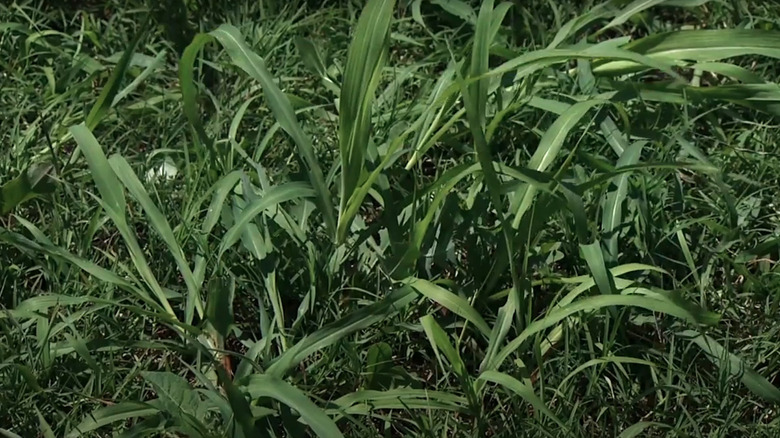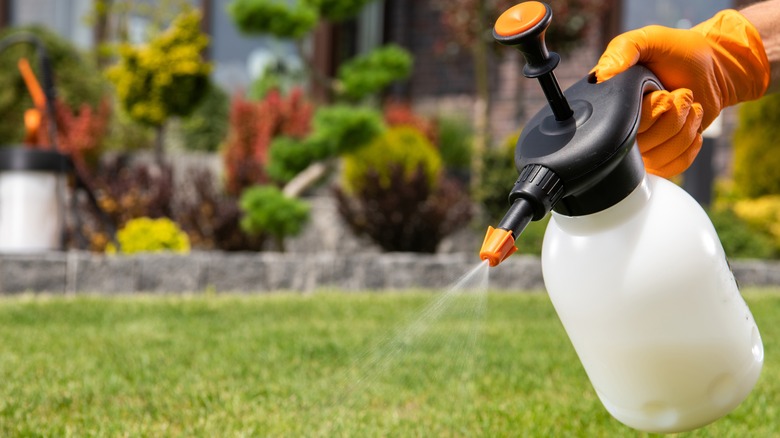Kill Invasive Johnsongrass With A Staple Ingredient You Already Have
Are you trying to take better care of your lawn? If so, paying attention to weed growth is one of the most important things you can do. There are many common weeds that you may identify in your yard and garden, but some are more aggressive than others. If a plant is labeled as invasive, it can grow particularly fast and may be tougher to control and remove. Eliminating Johnsongrass by hand is easier said than done. Fortunately, one simple ingredient can knock it out pretty easily and help you control invasive Johnsongrass weeds in your yard. That ingredient? Distilled white vinegar. The acetic acid in vinegar burns the leaves of Johnsongrass. This common pantry item can kill many types of weeds and plants with ease, and a single application can significantly damage Johnsongrass — you'll notice the weed starting to change within hours.
Johnsongrass (Sorghum halepense) is one difficult weed that can be particularly devastating to your lawn because it can spread and grow so quickly. This coarse, perennial grass can cause a lot of trouble in a lawn, clumping together and growing up to seven feet tall. It can even be toxic to pets and livestock when ingested and will produce hydrocyanic acid when under stress.
Using vinegar to eliminate invasive Johnsongrass
To eliminate invasive Johnsongrass, you'll need to add vinegar to a pump sprayer or spray bottle. You'll then spray it directly onto any Johnsongrass weeds that you're trying to eliminate. However, keep in mind that vinegar won't just kill weeds — it will burn and potentially kill any plants that are in its path. You may want to think twice before using vinegar to kill weeds, and be sure consider the potential drawbacks before using it. Avoid letting it come into contact with plants that you don't want to harm.
To add to the effectiveness of white vinegar when killing weeds, it's a great idea to mix it with dish soap and salt first. Simply combine 1 gallon of 5% white vinegar with 1 tablespoon of dish soap and 1 cup of table salt. Dish soap will help the vinegar cling to the weed and will dissolve surfactants, allowing the vinegar to do its job more effectively. Adding a bit of salt can also help the solution to sink into the ground to destroy the roots more easily.
Remember that it's best to apply this DIY weed killer on a dry, hot, and sunny day rather than when it's raining. If it's raining or if it's windy, the vinegar may get carried away and won't do as much good. Applying it on a sunny day will help you target the weed more easily and will ensure your efforts don't go to waste.

